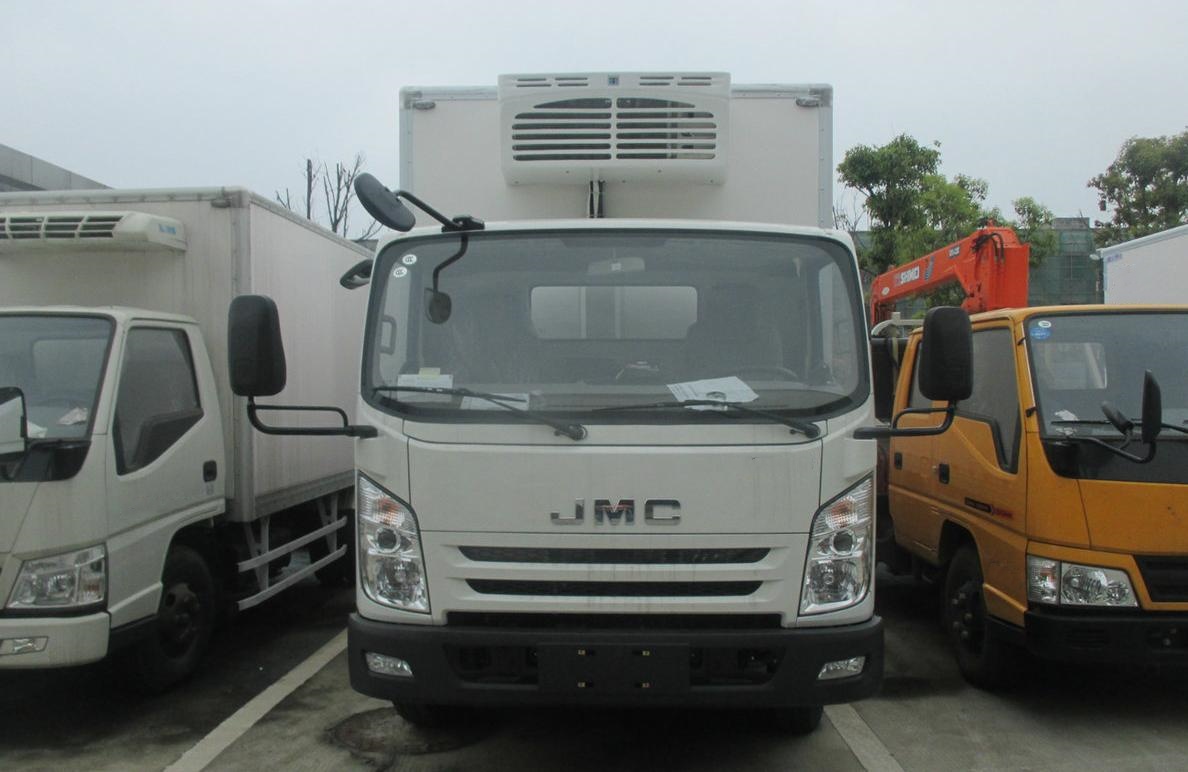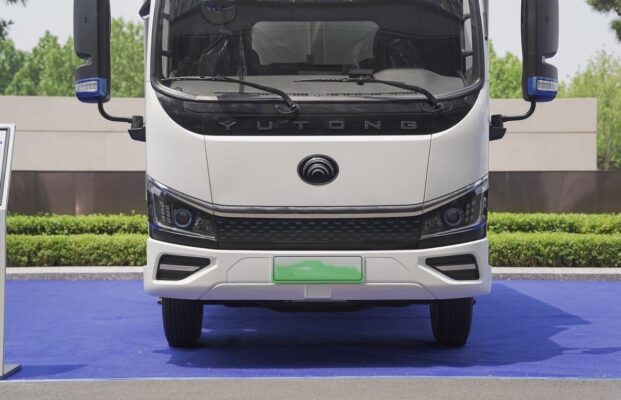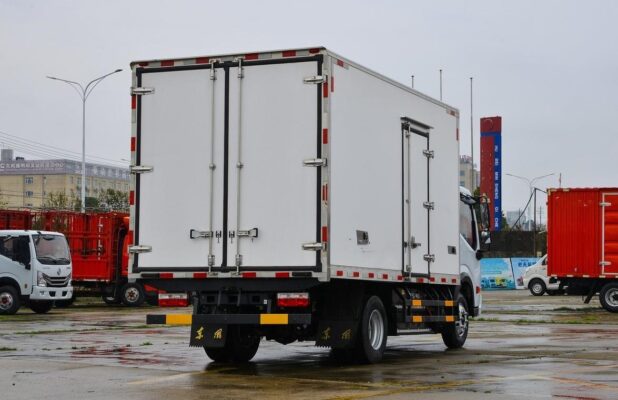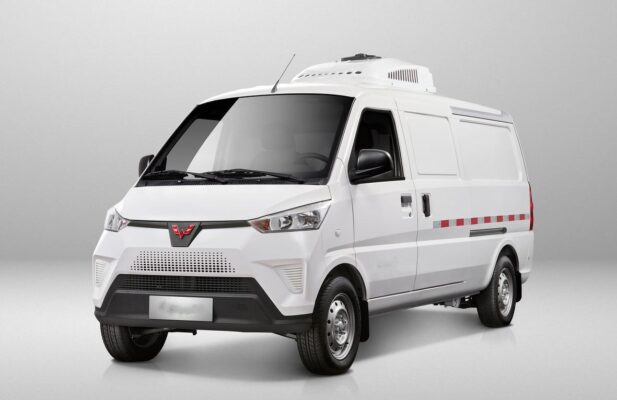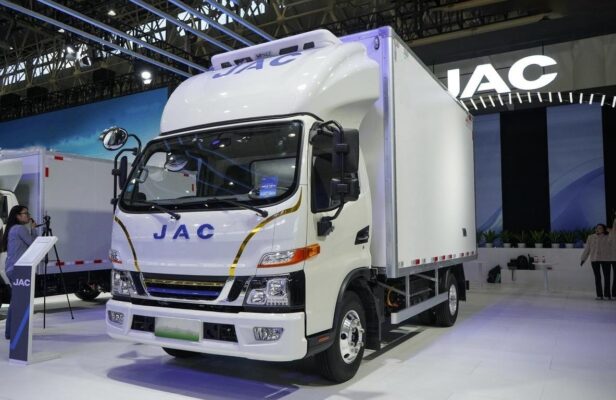Electric Truck News
Why Do Electric Pickups Consume More Power in Winter?
Electric pickups have become increasingly popular as more consumers embrace sustainable transportation options. Ia, many electric vehicle (EV) owners notice that their electric pickups consume more power during the winter months. This increase in energy consumption can pose challenges for drivers who rely on electric pickups for daily travel. Understanding the underlying reasons for this phenomenon is crucial for maximizing efficiency and ensuring that electric pickups perform well in cold weather.
Factors Contributing to Increased Power Consumption in Winter
Several factors contribute to the increased power consumption of electric pickups during winter. These factors stem primarily from the effects of cold temperatures on battery performance, additional energy demands for heating, and the impact of adverse weather conditions on vehicle operation.
1. Impact of Low Temperatures on Battery Performance
Electric pickups rely on lithium-ion batteries for energy storage, and these batteries are sensitive to temperature fluctuations.
A. Chemical Reaction Rates
At low temperatures, the chemical reactions within the battery slow down. This reduced reaction rate leads to decreased efficiency in storing and releasing electrical energy, ultimately affecting the vehicle’s performance.
- Reduced Capacity: Cold weather can reduce the usable capacity of the battery, meaning that even if the battery is fully charged, the amount of energy that can be drawn from it is less than in warmer conditions.
B. Increased Internal Resistance
The internal resistance of batteries increases as temperatures drop, resulting in greater energy loss during the conversion of electrical energy to mechanical energy.
- Energy Loss: The increased resistance translates into inefficiencies, which means that more energy is wasted as heat rather than being used to power the vehicle, thereby reducing the overall range of electric pickups.
2. Increased Energy Demands for Heating
Cold weather not only affects battery performance but also creates additional energy demands for maintaining comfortable cabin temperatures.
A. Use of Heating Systems
In winter, electric pickups must rely on heating systems to keep the interior warm. Unlike traditional combustion engine vehicles, which generate heat as a byproduct of fuel combustion, electric vehicles require dedicated heating systems that consume electrical energy.
- Increased Load on the Battery: The use of heating systems can significantly increase the overall power consumption of electric pickups, further straining the battery and reducing the effective driving range.
3. Adverse Weather Conditions and Driving Dynamics
Winter weather often brings adverse driving conditions, such as snow, ice, and rain, which can further exacerbate energy consumption.
A. Increased Friction and Resistance
Cold temperatures often lead to road conditions that increase friction. Snow and ice can create slippery surfaces, leading to greater rolling resistance.
- Higher Energy Usage: The electric pickups must exert more energy to maintain traction and momentum, further decreasing efficiency.
B. Shorter Daylight Hours
Winter months also bring shorter daylight hours, which limits the effectiveness of solar charging systems. Many electric vehicle owners rely on solar energy to recharge their vehicles, but reduced sunlight in winter means that these systems may generate less power.
- Increased Reliance on Grid Charging: As a result, electric pickups may become more reliant on grid charging during winter, further increasing overall energy consumption.
Strategies to Reduce Energy Consumption in Winter
While electric pickups naturally consume more power during winter, several strategies can help mitigate this increase in energy usage, allowing drivers to optimize the performance of their vehicles in cold weather.
1. Preheating and Smart Heating Practices
One effective way to reduce energy consumption is to preheat the vehicle’s interior before starting a trip.
- Preheating: This practice allows the driver to take advantage of grid power while the vehicle is still plugged in, reducing the load on the battery during the drive. Additionally, using the vehicle’s heating system wisely by selecting lower temperature settings can help minimize energy consumption.
2. Efficient Driving Habits
Adopting more efficient driving habits can also contribute to reduced energy consumption in winter.
- Smooth Acceleration and Braking: Minimizing rapid acceleration and harsh braking can lead to improved energy efficiency. Electric pickups are designed to deliver power smoothly, and adopting a gentle driving style can maximize range.
3. Regular Maintenance
Routine vehicle maintenance is crucial for optimal performance during winter.
- Tire Maintenance: Ensuring proper tire pressure is essential, as cold temperatures can cause tire pressure to drop. Properly inflated tires decrease rolling resistance and enhance energy efficiency.
4. Minimize Short Trips
Short trips can result in significant energy loss due to the energy consumed during starting and stopping.
- Trip Planning: Limiting short trips or combining errands into a single journey can help reduce the frequency of battery cycling, ultimately improving energy efficiency.
5. Choosing Electric Pickups with Larger Battery Capacities
Investing in electric pickups with larger battery capacities can provide an advantage during winter months.
- Improved Performance: Larger batteries are generally more resistant to capacity degradation in low temperatures and can maintain performance and range more effectively, making them a more suitable option for winter use.
6. Charging Practices
Charging practices can significantly influence the energy efficiency of electric pickups during winter.
A. Preheating the Battery
Preheating the battery before charging can enhance its efficiency.
- Battery Management Systems: Some electric vehicles feature battery management systems that can precondition the battery to optimize charging performance in cold weather.
B. Charge During Off-Peak Hours
Electric vehicle owners should consider charging during off-peak hours to take advantage of lower electricity rates.
- Nighttime Charging: Charging at night can also improve charging efficiency, as colder temperatures at night can lead to slower charging rates.
The Role of Battery Capacity in Winter Performance
Battery capacity plays a significant role in the power consumption and overall performance of electric pickups during winter.
1. Effects of Smaller Capacity Batteries
Smaller capacity batteries are more susceptible to capacity degradation in cold temperatures.
- Limited Range: This limitation can result in shorter driving ranges, which may impact daily travel needs. Users of electric pickups with smaller batteries may find it challenging to complete their daily routes without recharging more frequently.
2. Benefits of Larger Capacity Batteries
In contrast, larger capacity batteries generally perform better in cold conditions.
- Enhanced Range: They maintain a more stable performance and range even in colder temperatures, allowing drivers to have a more reliable driving experience during winter months.
Impact of Cold Weather on Battery Charging Speed
Cold temperatures do not just affect battery performance during operation; they also impact charging speed.
1. Increased Internal Resistance
As mentioned earlier, the internal resistance of batteries increases in cold weather, which slows down the charging rate.
- Longer Charging Times: As a result, it takes longer to fully charge the battery in winter compared to warmer months.
2. Charging in Warmer Conditions
To improve charging speed and efficiency, electric vehicle owners can opt to charge their vehicles in warm garages or indoors.
- Improved Efficiency: This practice can help mitigate the negative effects of cold weather on charging performance, enabling faster and more efficient charging sessions.
Daily Usage and Range Considerations in Winter
The reduction in driving range of electric vehicles in winter can indeed affect daily usage.
1. Planning and Adjustments
Users need to make reasonable arrangements based on their travel needs and the vehicle’s range.
- Strategic Charging: As charging demand may increase during winter months, users should select suitable charging plans and times to ensure normal vehicle operation.
2. Communication with Users
It’s essential for manufacturers to communicate range expectations clearly to consumers, helping them understand the implications of cold weather on battery performance.
Conclusion
In summary, electric pickups consume more power in winter due to various factors, including reduced battery efficiency at low temperatures, increased energy demands for heating, and the effects of adverse weather conditions on driving dynamics.
By implementing effective strategies to manage energy consumption, such as preheating, efficient driving practices, and regular maintenance, electric pickup owners can mitigate these effects and enhance the overall efficiency of their vehicles during colder months.
Additionally, understanding the impact of battery capacity, charging practices, and the effects of cold weather on performance can help drivers make informed decisions about their electric pickups, ensuring they are well-equipped to handle winter driving conditions. With continued advancements in technology and growing awareness, electric pickups can remain a reliable and sustainable option for transportation, even in the challenging winter months.
